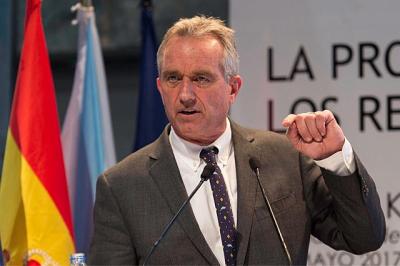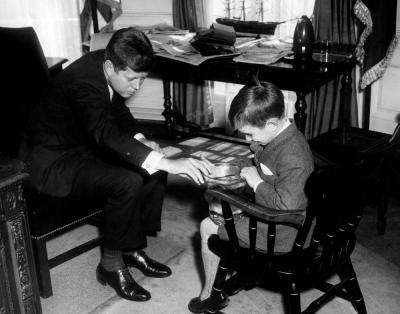by Harley Schlanger, LaRouche Organization:

June 3—The entry of Robert F. Kennedy, Jr. (RFK, Jr.) into the 2024 U.S. Presidential election has presented Americans with a potential that reaches far beyond that of the ordinary candidacy for president. Kennedy, the nephew of President John Kennedy, (JFK) and the son of former Attorney General and U.S. Senator Robert Kennedy, raised an explosive issue shortly after his April 19 announcement that he will be a candidate for the Democratic nomination for President.
TRUTH LIVES on at https://sgtreport.tv/
In an interview with WABC radio in New York City on May 8, Kennedy said, of the assassination of his uncle on November 22, 1963, “I think there is overwhelming evidence that the CIA was involved in his murder….I think it’s beyond a reasonable doubt at this point….The evidence is overwhelming that the CIA was involved in the murder and in the cover-up.” Kennedy had made this charge publicly previously in a tweet on December 17, 2022, calling the assassination of JFK “a successful coup d’etat.”

What makes this particularly explosive is that his statements coincide with extensive revelations of FBI and CIA illegal actions in Russiagate, and charges of the intelligence agencies’ promotion of disinformation, i.e., lies, to cover-up the escalation of the war waged by U.S./NATO forces against Russia in Ukraine. Among the more significant stories being covered up is Seymour Hersh’s charge that President Biden and the U.S. were responsible for the sabotage of the Nord Sea pipelines.
RFK, Jr. has been critical of the U.S. role in the Ukraine war, accusing the U.S. of provoking President Putin’s decision to launch Russia’s Special Military Operation, and refusal to engage in diplomacy to end the fighting. He has also attacked U.S. involvement in “endless wars”, and the loss of lives due to the harsh sanction regimes, which add to the loss of lives resulting from those wars.
But what makes his entry so significant goes beyond these legitimate issues he is raising. It opens the door for Americans to look back to the JFK assassination and coverup as the beginning of a fundamental change in U.S. history, and presents an opportunity to revive the best traditions of U.S. foreign policy, expressed in Kennedy’s vision of peace in his June 10, 1963 address at American University.

JFK and the Cuban Missile Crisis
The late U.S. statesman Lyndon LaRouche called the assassination of JFK “a defining moment for the United States, which launched the long spiral downward….” He added that it was “destabilizing, particularly with the cover-up….The combination of the assassination with the cover-up did destabilize the U.S., the institution of the government of the U.S., [and] destroyed the presidency as an efficient institution of government.”
It occurred at a moment during the Cold War when President Kennedy was engaged in intense combat with his advisers and the “Military-Industrial Complex” over the strategic direction of the nation. The near-miss of nuclear war with the Soviet Union during the Cuban Missile crisis provoked in JFK a sober re-evaluation of the strategic/military policy of the U.S., which nearly led to nuclear confrontation. Kennedy’s advisers were pushing for a war with the USSR, with their insistence that the U.S. should bomb Cuba, to take out the Soviet missiles there.
They considered Kennedy “weak”, because he had refused their demand to engage in a full military attack on Cuba following the debacle of the Bay of Pigs, a failed “covert” action run by the CIA, with full support of the Joint Chiefs of Staff, in April 1961. JFK responded to the Bay of Pigs fiasco by firing CIA chief Allen Dulles and stated that he intended to “splinter the CIA in a thousand pieces and scatter it to the winds.”
The anger from the War Hawks grew when Kennedy avoided a nuclear confrontation during the Cuban missile crisis through back-channel discussions between Robert Kennedy and the Soviet Ambassador to the U.S., Anatoly Dobrinin. In return for an agreement from Soviet leader Nikita Krushchev to remove the missiles from Cuba, Kennedy agreed to remove U.S. Jupiter missiles from Turkey, a quid-pro-quo which remained a secret for many years.

JFK’S “Peace Speech”
The shift in JFK’s thinking was made public in an extraordinary address on June 10, 1963 to a graduating class at American University in Washington, D.C. This speech came less than eight months after the Cuban missile crisis, during which time there had been ongoing back-channel communications between Kennedy and Krushchev, as both leaders realized they had a common struggle against the Cold War mentality which gripped many of their countrymen in their military-defense-intelligence sectors.
Read More @ LaRoucheOrganization.com



